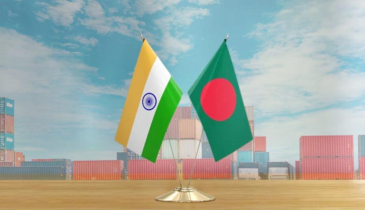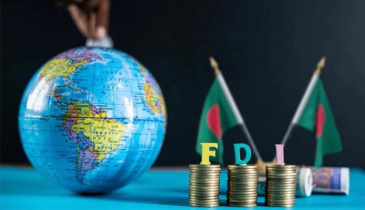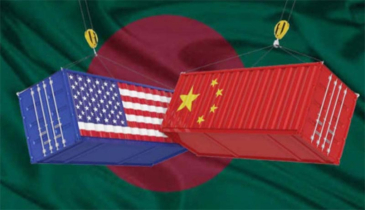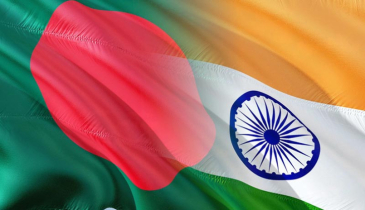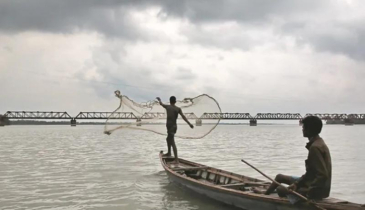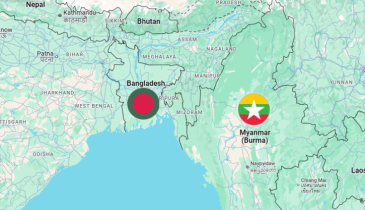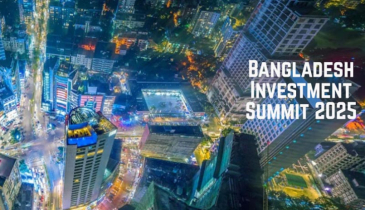7 years of Rohingya crisis: International community must be serious in the crisis resolution
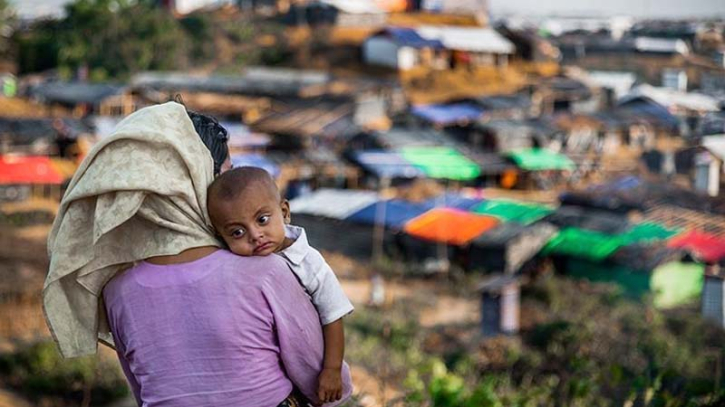
The Rohingya crisis has lasted for seven years, and there still seems to be no sign of an end in sight. More than a million Rohingya people in Myanmar crossed the border to seek refuge in Bangladesh in 2017 as a result of systematic ethnic cleansing operations carried out by their government, which the world appears to be allowing to continue apace.
This represents one of the worst cases of human rights violations in recorded history. The violent crackdown by the Myanmar government in 2017 also led to 9,000 fatalities and widespread destruction. As the major Rohingya refugee crisis has been over for seven years, there is yet another call for continued support from international partners to help protect the nearly one million Rohingya who are being hosted by Bangladesh and to assist in finding answers for a long-term solution to their predicament.
Since the 1970s, the Rohingya, an ethnic group in Myanmar, have been the target of persistent persecution. The military takeover in Myanmar in 2021 made matters worse for the Rohingya and made them even more vulnerable. The Rohingya people’s situation was made worse by the military led junta government and the Arakan Army’s persistent targeting of them. Over 100,000 Rohingya are refugees in Malaysia as of July 2024; thousands more are in Indonesia, Thailand, and Bangladesh; the situation is still grave. The incapacity of the international community to take swift action at the height of the genocide in 2017 was one of its most obvious failings.
One of the most damning criticisms of the international response to the Rohingya crisis is the lack of emergency intake, repatriation, or resettlement programs during that crucial period. The Rohingya issue has developed into a potent illustration of what happens when persecution is sustained and organized over time. The Rohingya community has endured unspeakable suffering in Myanmar. In order to repatriate the Rohingya, Bangladesh and Myanmar started bilateral negotiations in 2017. Nobody has been able to repatriate a single Rohingya to Myanmar despite multiple attempts. The UNSC and the Association of Southeast Asian Nations (ASEAN), among other regional organizations, as well as nations like China, India, the United States, and the United Kingdom, have all sadly underperformed in their response. Long-term solutions have been noticeably lacking, even in the case of emergency assistance. Many Rohingyas find themselves in a precarious situation, unable to rebuild their lives or seamlessly integrate into their host communities, due to the absence of creative resettlement programs and socio-economic inclusion initiatives.
They still have to deal with difficult living circumstances and uncertain futures. Bangladesh’s Interim Government’s Chief Advisor, Dr. Muhammad Yunus, has appropriately called on the international community to show solidarity by providing steady financial support and working to guarantee their “eventual repatriation to Myanmar, with safety, dignity, and full rights.”. “During a period of transition for the Bangladeshi people, Bangladesh’s humanitarian spirit deserves recognition on a global scale. To address the Rohingya issue, numerous nations and international organizations need to take different actions. Former UN Secretary-General Ban Ki-moon chastised the Burmese government for their lack of urgency in repatriating the displaced Rohingya.
The ongoing Rohingya crisis has deeply concerned UN Secretary General Antonio Guterres. According to Yanghili, Myanmar’s UN Special Envoy for Human Rights, every major nation in the world has a role to play in resolving the Rohingya crisis. A resolution denouncing the violations of human rights committed by the Myanmar government against the Rohingya Muslim community and other religious minorities was approved by the UN on December 27, 2019. The resolution passed by the UN General Assembly demanded that Myanmar desist from inciting hatred toward the Rohingya and other minority groups. But rather than relying solely on leap service, the international community needs to take a proactive approach.
Reentry into Myanmar in a respectable and sustainable manner is still the main way out of this mess. We demand that the world community show the political will necessary to make this happen. The most crucial subject in the wake of the Rohingya crisis is voluntary repatriation. The voluntary return of refugees is essential to finding a long-term solution to the refugee crisis. For the Rohingya refugees to be able to return in safety, dignity, and sustainability, the international community must play a critical role.
The security situation in the Rohingya refugees’ places of origin needs to be ensured before they will think about going back to Myanmar. The monitoring and facilitation of this aspect are greatly aided by the international community, particularly by UN agencies and neighboring countries. In the absence of sufficient security, voluntary repatriation is still only a pipe dream. It is imperative to guarantee the Rohingya that they will be granted equal rights and privileges with other citizens of Myanmar upon their return. It is past time for the international community to put pressure on the government of Myanmar to pass laws giving the Rohingya community full citizenship and equal rights. In order to guarantee that the repatriation process includes reparations, compensation, aid and acknowledgment of the atrocities committed, the international community must play a proactive pragmatic role.
For years, the international community as a whole has failed to play a part in enabling the Rohingya to return to their own country. It is time they took action in order to ensure honorable and long-lasting solution. Regarding relations with Myanmar, China and India need to set aside their limited strategic interests. The Rohingya issue is not just Bangladesh’s; it is also a potential regional spillover issue that requires the attention of China, India, neighboring countries, Bangladesh, Myanmar, and international organizations. Given that it affects the entire world, a prompt solution is required. They must keep offering all assistance in their power to find a long-term, peaceful solution to the Rohingya problem. They must exert pressure on the Myanmar government by acting openly and sincerely to facilitate the Rohingyas’ safe return to Rakhine State and by taking the required actions in accordance with international and human rights law to end the Rohingya conflict. Their positive role in Rohingya repatriation is crucial, in addition to their financial aid. Focus needs to be placed on finding a suitable and long-term solution to the Rohingya problem. The international community started working on the Rohingya issue in a number of ways over the past seven years. Bangladesh’s accomplishment in resolving this issue has enabled it to garner the interest of the international community.
However, other global crises caused the international community’s attention to shift, and the Rohingya situation was no longer as important. However, the international community must also recognize that this is a severe issue. The international community claims that Rohingyas are refusing to return because Myanmar has not established an environment in Rakhine state that would facilitate their return. The Rohingya believe that if they went back to Myanmar, they would be subjected to military persecution once more unless they were guaranteed citizenship, ethnic identity, land rights, and justice for the genocide. The international community must keep applying pressure on Myanmar in order to foster the conditions necessary for this. Bangladesh is working to find a solution to this issue in tandem with global public opinion. The international community’s astute choice and vision have made it possible for this concerted effort to exert pressure on Myanmar regarding the Rohingya issue. This was a challenge for a country struggling with its own economic and development issues, but one we took on because it was the right thing to do. Although foreign assistance was guaranteed from the beginning, in recent years it has only been a trickle. Recently, South Korea, a nation that has continuously assisted Bangladesh in accommodating the Rohingya since the beginning, declared its intention to donate $10 million in humanitarian aid for the displaced people.
Right now, Bangladesh requires more of this. It is now quite evident that Bangladesh should continue to host the refugees in this situation, even though there are still very few chances for the Rohingya to return home safely and securely due to Myanmar’s lack of cooperation. But the only way this is going to happen is if the international community makes a renewed commitment to providing more funding and assistance. More nations need to follow South Korea’s example and take action, as they have already demonstrated their ability to support their statements with deeds. But the final goal must be the Rohingya repatriation and on the 7 years of the Rohingya crisis,the international community must be proactively serious in the crisis resolution through the repatriation of Rohingyas to Myanmar.
.png)


